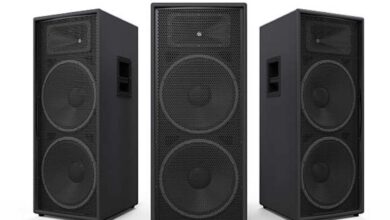Nursing homes play a vital role in providing care and support for the elderly, ensuring their physical, mental, and emotional well-being. One crucial aspect of this care is the incorporation of recreational activities, which can have a profound impact on the overall quality of life for residents.
This article delves into the myriad benefits of recreational activities in nursing homes, highlighting their importance and providing insights on how to effectively incorporate them into daily routines.
Physical Benefits of Recreational Activities in Nursing Homes
Maintaining physical health and mobility is a primary concern for many nursing home residents. Recreational activities can serve as an effective tool in addressing this need.
Regular participation in physical activities, such as group exercises, dance classes, or outdoor walks, can help residents improve their strength, flexibility, and balance. These activities not only promote physical fitness but also reduce the risk of falls and other age-related health issues.
Moreover, engaging in recreational pursuits can encourage residents to be more active, fostering a healthier lifestyle and reducing the likelihood of sedentary-related complications.
Nursing home staff can play a pivotal role in facilitating these physical activities, ensuring that residents are provided with a safe and supportive environment to explore their interests and maintain their physical well-being.
By collaborating with healthcare professionals, such as physical therapists, the nursing home staff can design personalized exercise programs that cater to the unique needs and abilities of each resident.
To learn more about the quality and services of different nursing homes, including the staff’s involvement in physical activities, you can refer to the detailed reviews available at elderlycaretips.io/nursing-home-reviews/. These insights can help families make informed decisions about the best care options for their loved ones.
Mental and Emotional Benefits of Recreational Activities in Nursing Homes
In addition to the physical advantages, recreational activities in nursing homes can also have a profound impact on the mental and emotional well-being of residents. Engaging in activities that spark joy, creativity, and social interaction can help alleviate feelings of loneliness, depression, and anxiety, which are common challenges faced by many elderly individuals in nursing home settings.
Activities such as arts and crafts, music therapy, and group discussions can provide residents with a sense of purpose, self-expression, and social connection. These pursuits not only stimulate the mind but also foster a sense of accomplishment and personal fulfillment. By engaging in these activities, residents can develop new skills, explore their interests, and form meaningful relationships with their peers, all of which contribute to a more positive and enriching experience during their time in the nursing home.
Nursing home staff can play a crucial role in identifying and catering to the unique interests and preferences of each resident. By offering a diverse range of recreational activities, they can ensure that all residents have the opportunity to participate in activities that they find engaging and rewarding.
How Recreational Activities Improve the Overall Well-Being
The benefits of recreational activities in nursing homes extend beyond the physical and mental realms, as they can also have a positive impact on the overall well-being of residents. By engaging in activities that promote physical, mental, and emotional health, residents can experience a greater sense of autonomy, independence, and quality of life.
Recreational activities can help reduce the risk of cognitive decline and dementia by stimulating the brain and providing residents with opportunities to learn new skills and engage in mentally stimulating tasks. This, in turn, can lead to improved memory, problem-solving abilities, and overall cognitive function.
Furthermore, the social interaction and sense of community fostered through recreational activities can contribute to a more positive and supportive living environment within the nursing home. Residents who actively participate in these activities often report feeling more connected to their peers, less isolated, and more satisfied with their living situation.
Read Also: 8 Ways For Supporting Loved Ones in Mental Health Crisis
The Role of Nursing Home Staff in Facilitating Recreational Activities
Nursing home staff play a crucial role in facilitating and promoting recreational activities for residents. By taking an active interest in the preferences and needs of each individual, staff can develop tailored activity programs that cater to the diverse interests and abilities of the residents.
This may involve collaborating with healthcare professionals, such as occupational therapists and recreational therapists, to design and implement engaging activities. Nursing home staff can also work to create a welcoming and inclusive environment, encouraging residents to participate and providing the necessary support and guidance.
Additionally, nursing home staff can serve as role models, actively participating in recreational activities and demonstrating the benefits of an active and engaged lifestyle. By fostering a culture of positivity and enthusiasm around these activities, staff can inspire residents to embrace the opportunities for physical, mental, and emotional enrichment.
Examples of Recreational Activities in Nursing Homes
Nursing homes offer a wide range of recreational activities to cater to the diverse interests and abilities of their residents. Some common examples include:
Physical Activities:
- Group exercises (e.g., chair yoga, Tai Chi, low-impact aerobics)
- Outdoor walks and gardening
- Dance classes
- Bowling or other sports-related activities
Mental Stimulation:
- Arts and crafts (e.g., painting, pottery, woodworking)
- Puzzles and brain teasers
- Book clubs and discussion groups
- Trivia and game nights
Social Engagement:
- Music therapy and sing-alongs
- Cooking or baking classes
- Field trips and outings
- Intergenerational programs (e.g., visits from local schools or community groups)
Spiritual and Emotional Well-being:
- Meditation and mindfulness practices
- Pet therapy
- Reminiscence activities (e.g., sharing life stories, looking at old photographs)
- Support groups for specific health conditions or life experiences
By offering a diverse range of activities, nursing homes can cater to the unique preferences and needs of their residents, ensuring that everyone has the opportunity to engage in pursuits that they find meaningful and enjoyable.
Tips for Incorporating Recreational Activities into Nursing Home Routines
Integrating recreational activities into the daily routines of nursing home residents can be a rewarding and enriching experience for both residents and staff. Here are some tips to help nursing homes effectively incorporate these activities:
- Conduct Assessments: Regularly assess the interests, abilities, and needs of each resident to ensure that the activities offered are tailored to their individual preferences.
- Establish a Balanced Schedule: Develop a well-rounded schedule that includes a mix of physical, mental, social, and emotional activities to cater to the diverse needs of the residents.
- Encourage Resident Involvement: Empower residents to take an active role in the planning and implementation of recreational activities, fostering a sense of ownership and engagement.
- Collaborate with Community Partners: Seek out partnerships with local organizations, schools, or community groups to bring in new and engaging activities, as well as opportunities for intergenerational interaction.
- Provide Adequate Resources: Ensure that the nursing home has the necessary equipment, supplies, and dedicated spaces to facilitate a wide range of recreational activities.
- Train and Empower Staff: Invest in the professional development of nursing home staff, equipping them with the skills and knowledge to effectively lead and support recreational activities.
- Celebrate Successes: Recognize and celebrate the achievements and milestones of residents as they participate in recreational activities, reinforcing the positive impact of these pursuits.
By incorporating these strategies, nursing homes can create a vibrant and engaging environment that empowers residents to maintain their physical, mental, and emotional well-being, ultimately enhancing their overall quality of life.







